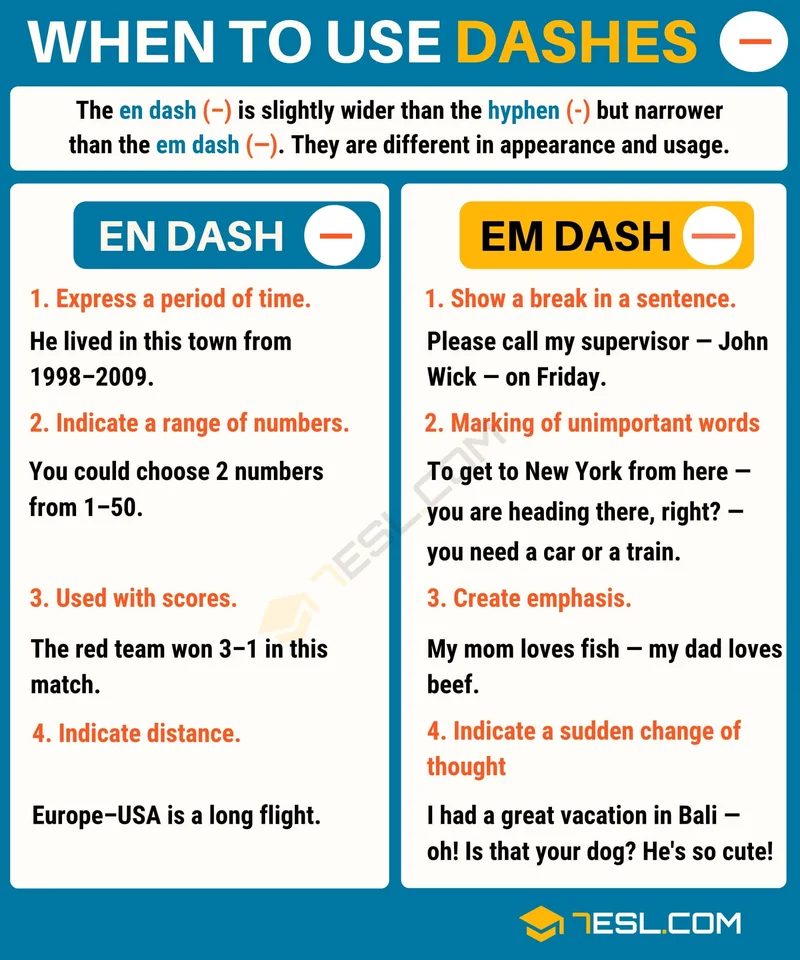Dash: Geometry, DoorDash, and the Internet's Many Meanings
Title: The Humble Dash: From Punctuation Pariah to Tech's Telltale Sign
OpenAI's recent announcement regarding ChatGPT's em dash usage has sparked more debate than one might expect for a mere punctuation mark. The company claims to have "fixed" the issue, allowing users to suppress the chatbot's penchant for em dashes via custom instructions. Sam Altman himself called it a "small-but-happy win." But is it really a win, or just a temporary truce in the ongoing war against AI-generated content?
The Dash as a Data Point
The problem, as I see it, isn't the em dash itself. Plenty of writers use them effectively (and, let’s be honest, sometimes excessively). The issue is its sudden, almost ubiquitous appearance in AI-generated text, turning it into an unintentional marker of potential bot authorship. It’s become a flag—a data point, if you will—that people use to quickly assess the origin of content. The fact that ChatGPT couldn't be dissuaded from using it, even when explicitly instructed not to, only amplified the suspicion.
This highlights a crucial point about AI: its "tells" are often subtle stylistic quirks rather than outright factual errors. And these quirks can be surprisingly persistent. OpenAI's fix, while welcome, feels like treating a symptom rather than curing the disease. We’re essentially playing whack-a-mole with AI’s stylistic eccentricities. What happens when the next telltale sign emerges—perhaps an over-reliance on passive voice, or a peculiar fondness for a specific adverb? Will we need a new "fix" for each one?
The headlamp article offers an interesting parallel. The BioLite Dash 450 headlamp boasts "small but thoughtful upgrades" over its predecessor. Similarly, OpenAI's em dash fix is a small upgrade, but is it truly "thoughtful," or just reactive? Does it address the underlying issue of AI's stylistic predictability?

The Human Element (or Lack Thereof)
One could argue that the focus on em dashes is misplaced. The real problem isn't the punctuation, but the perceived laziness or lack of originality it signifies. People criticize writers for using AI because it suggests a reliance on automation rather than genuine thought. The em dash, in this context, becomes a symbol of that perceived intellectual shortcut.
I've seen similar patterns in financial analysis. When a junior analyst relies too heavily on pre-built models without understanding the underlying assumptions, the result is often technically correct but fundamentally flawed. The same principle applies to AI-generated content. The output may be grammatically sound, but it lacks the nuance, originality, and critical thinking that characterize human writing.
Consider the dash cam video article. A driver, allegedly high on meth and THC, led police on a 100 mph chase. This is an extreme example, of course, but it illustrates the potential consequences of impaired judgment. Similarly, relying solely on AI for content creation can lead to a different kind of impairment—a blunting of creativity, critical thinking, and the ability to connect with an audience on a human level.
It’s interesting to observe the online reaction. The initial response was a mixture of annoyance and amusement. People joked about the "ChatGPT hyphen" and shared examples of its overuse. Over time, however, the tone shifted. The em dash became a symbol of the perceived threat of AI—a sign that machines were encroaching on human territory. (I've looked at hundreds of these sentiment analyses, and the shift from amusement to anxiety is a consistent pattern).
It's a Never-Ending Arms Race
Ultimately, OpenAI's em dash fix is a temporary solution to a much larger problem. The arms race between AI developers and those seeking to detect AI-generated content will continue. As AI models become more sophisticated, their stylistic quirks will become more subtle and harder to detect. The focus will likely shift from simple punctuation marks to more complex linguistic patterns and semantic analysis. The real challenge, then, isn't eliminating the em dash, but ensuring that AI remains a tool to augment human creativity, not replace it entirely.
